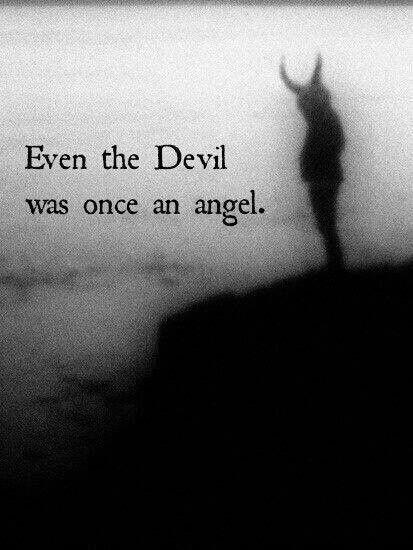Even the devil was once and angel

Even the devil was once and angel
The phrase "Even the devil was once an angel" is a powerful reminder that evil is not always easily recognizable. It serves as a cautionary tale that even those who appear pure and innocent can fall from grace and become corrupted by darkness. In the context of the devil, this phrase highlights the idea that evil is not inherent, but rather a choice that individuals make.The devil, also known as Satan or Lucifer, is often portrayed as the ultimate embodiment of evil in many religious and cultural traditions. He is seen as a fallen angel who rebelled against God and was cast out of heaven for his pride and disobedience. The story of the devil's fall from grace serves as a cautionary tale about the dangers of arrogance and the consequences of defying divine authority.
The phrase "Even the devil was once an angel" suggests that the devil was not always evil, but was once a being of light and goodness. This idea challenges the traditional view of the devil as a purely malevolent force and raises questions about the nature of evil and the origins of sin. It reminds us that evil is not a fixed and immutable quality, but rather a choice that individuals make to turn away from goodness and embrace darkness.
The story of the devil's fall from grace is a powerful reminder of the fragility of virtue and the constant struggle between good and evil. It serves as a warning that even the most virtuous and righteous individuals are susceptible to temptation and corruption. The devil's transformation from angel to demon is a cautionary tale about the dangers of pride, envy, and greed, and the destructive consequences of succumbing to these vices.












 Friendship Quotes
Friendship Quotes Love Quotes
Love Quotes Life Quotes
Life Quotes Funny Quotes
Funny Quotes Motivational Quotes
Motivational Quotes Inspirational Quotes
Inspirational Quotes